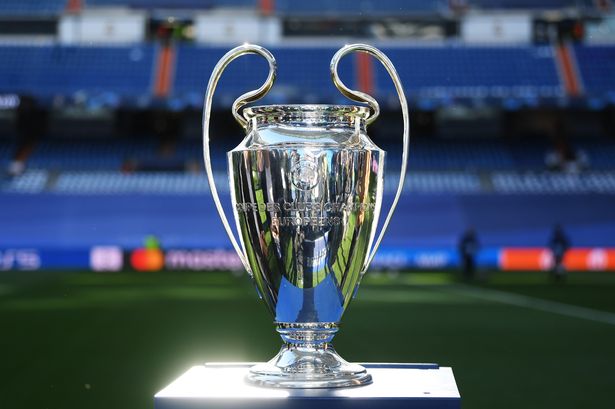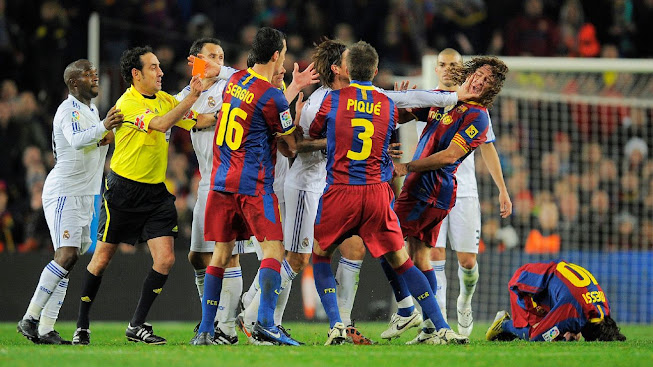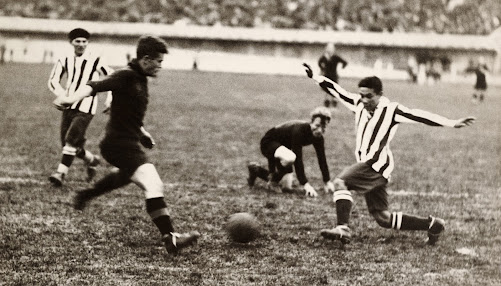A Glorious Tale: The History of the Champions League
Introduction:
The UEFA Champions League is undoubtedly one of the most prestigious and highly anticipated football tournaments in the world. Every year, the top European clubs battle it out on the grand stage, vying for glory and the coveted title. As fans eagerly anticipate each season, it is worth taking a step back and delving into the fascinating history of the Champions League, from its humble beginnings to its current status as a pinnacle of football excellence.
Origins and Early Years:
The Champions League, formerly known as the European Champion Clubs' Cup, had its origins in the 1950s. Inspired by the success of the South American Copa Libertadores, a tournament designed for clubs in that region, UEFA introduced a similar concept for European clubs. The inaugural season took place in 1955-1956, with 16 teams competing for the prestigious trophy.
The format of the tournament initially consisted of two-legged knockout rounds, leading up to a final. The early years saw notable teams such as Real Madrid, AC Milan, and Bayern Munich assert their dominance. Real Madrid, led by legendary figures such as Alfredo Di Stefano and Ferenc Puskas, became the early powerhouse, winning the first five editions of the tournament from 1956 to 1960.
Evolution and Expansion:
As the years went by, the Champions League underwent significant changes and expansions to accommodate the ever-growing number of talented European clubs. In the early 1990s, the tournament was rebranded as the UEFA Champions League, introducing a group stage to allow more teams to participate.
The inclusion of a group stage brought a new dynamic to the competition, allowing clubs to face each other home and away. This change created more excitement and unpredictability, as the group stage became a fiercely contested battleground for securing knockout round berths.
European Football Domination:
The UEFA Champions League has witnessed several remarkable eras dominated by particular clubs. The 1970s were characterized by the dominance of Dutch football, with Ajax clinching three consecutive titles from 1971 to 1973. Under the visionary leadership of Rinus Michels and with a team boasting legends like Johan Cruyff, Ajax revolutionized the game with their "Total Football" philosophy.
The late 1970s and 1980s saw a shift in power to English clubs, with Liverpool emerging as a dominant force. Led by legendary manager Bob Paisley and featuring an array of talented players, Liverpool claimed four titles during this period. The tragedy of the 1985 Heysel Stadium disaster cast a dark shadow over Liverpool's European success but also led to reforms in stadium safety regulations.
The 1990s and early 2000s witnessed the rise of Italian clubs, particularly AC Milan and Juventus, who captured multiple titles between them. The AC Milan team of the early 2000s, featuring stars such as Paolo Maldini, Andrea Pirlo, and Filippo Inzaghi, delivered two Champions League triumphs in 2003 and 2007.
The Modern Era:
In recent years, Spanish giants Real Madrid and Barcelona, as well as German powerhouse Bayern Munich, have dominated the Champions League. Real Madrid, under the stewardship of Zinedine Zidane, enjoyed an unprecedented period of success, clinching the trophy three times consecutively from 2016 to 2018. Meanwhile, Barcelona's mesmerizing style of play, led by Lionel Messi, saw them lift the trophy in 2009, 2011, and 2015. Bayern Munich showcased their might in the 2019-2020 season, completing a remarkable treble with a resounding Champions League victory.
Conclusion:
The UEFA Champions League has an illustrious history, filled with iconic
moments and legendary teams. From its modest beginnings as the European Champion Clubs' Cup to its current incarnation as the UEFA Champions League, the tournament has evolved, expanded, and captivated football fans worldwide. It has witnessed the rise and fall of dynasties, showcased the brilliance of individual players, and provided countless unforgettable moments.
As the Champions League continues to captivate and enthral fans, one thing remains certain: the pursuit of European club football's ultimate prize will always ignite the passion and dreams of players, coaches, and supporters alike.







Comments
Post a Comment